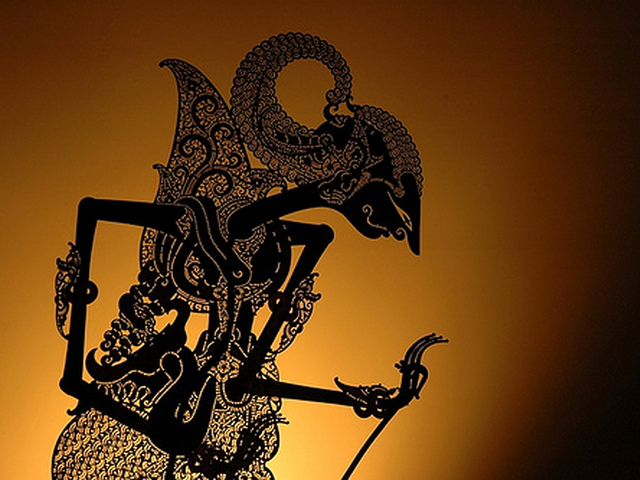Indonesia recalled its ambassador from Canberra because Australian intelligence eavesdropped on the Indonesian president and his wife.
Now Australia recalls its ambassador from Jakarta because Indonesia has executed two Australian drug smugglers.
The same diplomatic response to two events that have nothing in common: an intelligence gambit that went sour, and the tragic end to two young lives that went astray. What’s the common factor that caused Indonesia and now Australia to withdraw ambassadors?
The answer is simple because it’s big. And the answer has to be simple because it covers so many complexities.
The executions and the intelligence backfire share one vital dynamic: this is about Australia and Indonesia. Name two neighbouring states with less in common—a disparate pair destined to discomfort.
When Tony Abbott predicted that his diplomacy would be more Jakarta than Geneva he spoke more truly than he could have feared. In his short period in office, the ambassador recall score card now stands at one-all.
Abbott’s prediction of less internationalism and multilateralism, as represented by Geneva, had party and political significance, reflecting Liberal hang-ups made explicit by John Howard’s UN rejectionism.
Yet Abbott’s embrace of Jakarta expressed Australian interests and regional history. As the latest play of the ambassadorial yo-yo demonstrates, that history is defined by clash and crisis. These two nations have elevated a bit of common pragmatism to a guiding principle: we must live together though we are ever apart.
With emotions high and language hard, a stroll around the pragmatic principle is timely.
Walking the most delicate military and diplomatic line during Confrontation, Robert Menzies declared on 4 February 1965: ‘We have to live with Indonesia for hundreds of years and would prefer to live in peace.’
In the warmest speech about Oz I’ve ever heard from an Indonesian president, Susilo Bambang Yudhoyono spoke in the Great Hall of the Australian Parliament on 4 April, 2005, affirming the importance of the relationship while stressing the need to deal with each other differently:
‘Over the years, our relations have experienced many twists and turns, highs and lows. We know from experience that our relations are so complex and unique that it can be pulled in so many different directions, and it can go right as often as it can go wrong. Which is why we have to handle it with the greatest care and counsel.’
See such sentiment turned into diplomatese in the Framework for Security Cooperation signed at Lombok in November 2006. The pact is rinsed through with UN Charter language as it grapples with the together–apart reality. The first two guiding Principles of the Lombok treaty give the flavour and hint at the history:
1. Equality, mutual benefit and recognition of enduring interests each Party has in the stability, security and prosperity of the other.
2. Mutual respect and support for the sovereignty, territorial integrity, national unity and political independence of each other, and also non-interference in the internal affairs of one another.
One together–apart reality is that Indonesia can direct Australia’s regional dreams or dominate its nightmares. Writing about this over the decades, the voice of Jamie Mackie usually plays across my keyboard.
When Abbott had his first meeting with Jokowi, I distilled the Mackie spirit into a ten-point briefing for any Oz PM.
Here’s two bits of Mackie wisdom to be used both as the ambassador leaves Jakarta and when he returns.
1. It’s not a special relationship because the differences are too great at too many levels.
2. Tone matters—no shouting, no lectures and no domestic politics.
The pragmatic and the practical get a hearing when we can’t agree on principle. After the two executions, Australia will, rightly, continue to speak to the principles involved in opposing the death penalty. Those principles didn’t win the day when it mattered for the two Australians. After the statements of principle and the even stronger expressions of Australian public revulsion, what practical points are available to Oz ministers and diplomats? (When they resume talking, that is.)
Consider a private conversation on these lines: The executions hurt Indonesia internationally. And as the Lombok treaty made explicit, when Indonesia suffers then Australia’s interests suffer. The effective freeze on executions during most of SBY’s second term was more than just masterly Javanese inactivity. The sooner Jokowi can edge back towards SBY’s position the better.
Then Australia can point to the Singapore example. Granted, Indonesia hates Singapore lessons even more than Australian lectures. Make it a quiet nudge on how Singapore has changed course while not altering political language.
In the 1990s, Singapore had one of the highest execution rates, per capita, in the world. On a lot of Fridays at dawn, the hangman was busy at Changi prison. Quietly, Singapore’s elite shifted ground. The city state decided that being the only shopping centre with the death penalty was lousy branding.
In 2011, Lee Kuan Yew retired from Cabinet. In 2012, Singapore changed the law on some mandatory sentencing and gave judges more discretion. The shift was about reputational damage as much as principle.
Australia can and should have a loud argument with Indonesia about principle and the treatment of its people. But the private, practical points might just have the most effect. And remember the Jamie Mackie playbook. Tone matters. This is not a special relationship – the differences are too great—yet it is, most definitely, a unique and vital relationship.


